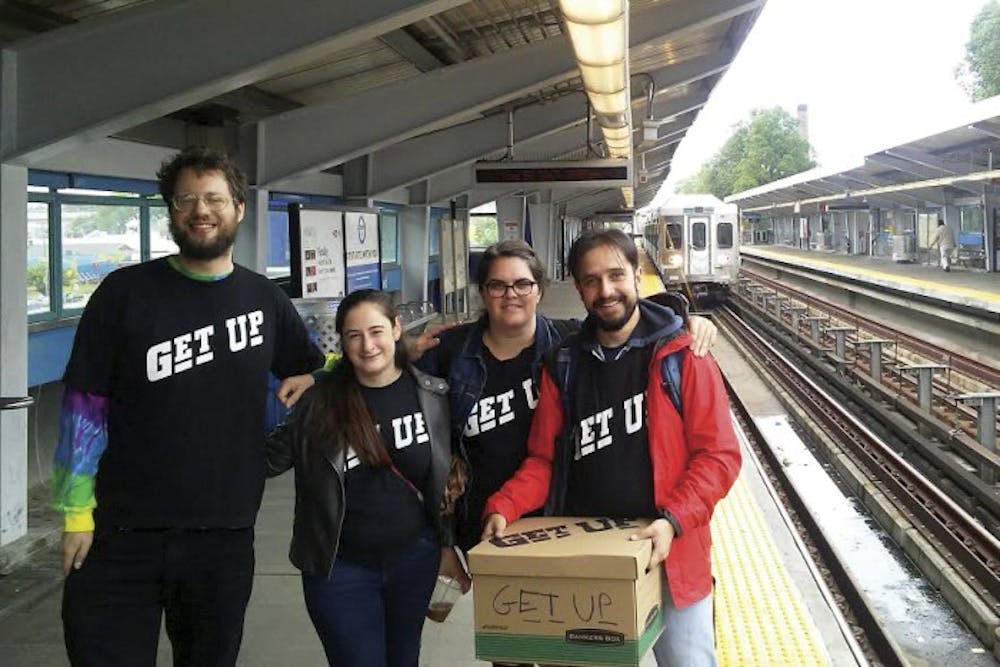
After 203 days awaiting a response, Penn graduate students have finally received permission to legally move forward with a vote on whether to unionize or not.
On Dec. 19, Philadelphia's National Labor Relations Board issued an affirmative decision concerning a petition filed by Penn's graduate student workers for the right to vote for union representation. The election, which will consist of a secret ballot to ensure voter anonymity, will take place this spring.
This is the second time the pro-union organization Graduate Employees Together – University of Pennsylvania has held an election to unionize at Penn. The first election took place in 2003, where an exit poll conducted by The Daily Pennsylvanian confirmed two-thirds of voters voted yes to unionize.
However, in mid-2004, the University had not yet counted the votes when the NLRB overturned its rule that allowed private universities to form graduate student unions.
The ruling was reversed a second time in 2016, after a case with Columbia University in which the NLRB concluded that graduate student workers at private universities are “statutory employees covered by the National Labor Relations Act.”
Abiding by the standard NLRB unionization process, GET-UP filed its petition in May 2017. While the University challenged the petition in June, which resulted in a three-week delay, GET-UP's petition went unanswered for an unusually long amount of time.
According to NRLB's website, 98.5 percent of its elections in the fiscal year 2017 took place within 56 days of a petition's submission. However, Philadelphia's NLRB issued a response after 203 days.
“We are disappointed with the NLRB ruling,” University spokesman Stephen MacCarthy said in a emailed statement. “As we have stated before, we view our graduate student scholars as students and our future colleagues rather than employees, and believe we can better support them without the intervention of a labor union.”
Provost Wendell Pritchett expressed a similar opinion in an email sent to Penn graduate students the day after the NLRB’s announcement.
If the majority of graduate students vote yes to union representation, GET-UP will become the exclusive bargaining representative for nine of the 12 graduate schools. The School of Engineering and Applied Sciences and the Wharton School are recent additions. Previously, seven schools were represented. According to their website, GET-UP will negotiate for matters such as “healthcare issues, lack of funding, discrimination, or an inadequate grievance procedure.”
Despite the positive exit poll results following the 2003 election, students remain divided on what the outcome is likely to be this time round.
“It could go either way. Anyone who says otherwise is speaking from pure conjecture," said Ian Heinrich, the president of the anti-union group No Penn Union and pharmacology Ph.D. student.
Heinrich also said that No Penn Union plans to hold town hall forums leading up to the vote, encouraging graduate students to pose questions and inform themselves.
Graduate and Professional Student Assembly President and third-year Design and School of Arts and Sciences professional master's student Miles Owen said that GAPSA will also be working with both GET-UP and the University administration to inform graduate students to make the decision that is best for them.
Member of both GAPSA and GET-UP Olivia Harding said at a meeting on the last day of classes, GET-UP members became frustrated that they had waited so long.
“When we finally got the answer on Dec. 19, it was a such a relief to know. It was affirmational because it referenced the Columbia decision, which was extremely clear that graduate students are both students and employees," Harding said. "Penn is both an educator and an employer of us, so [this decision] justified everything we had been working for.”
The Daily Pennsylvanian is an independent, student-run newspaper. Please consider making a donation to support the coverage that shapes the University. Your generosity ensures a future of strong journalism at Penn.
Donate




